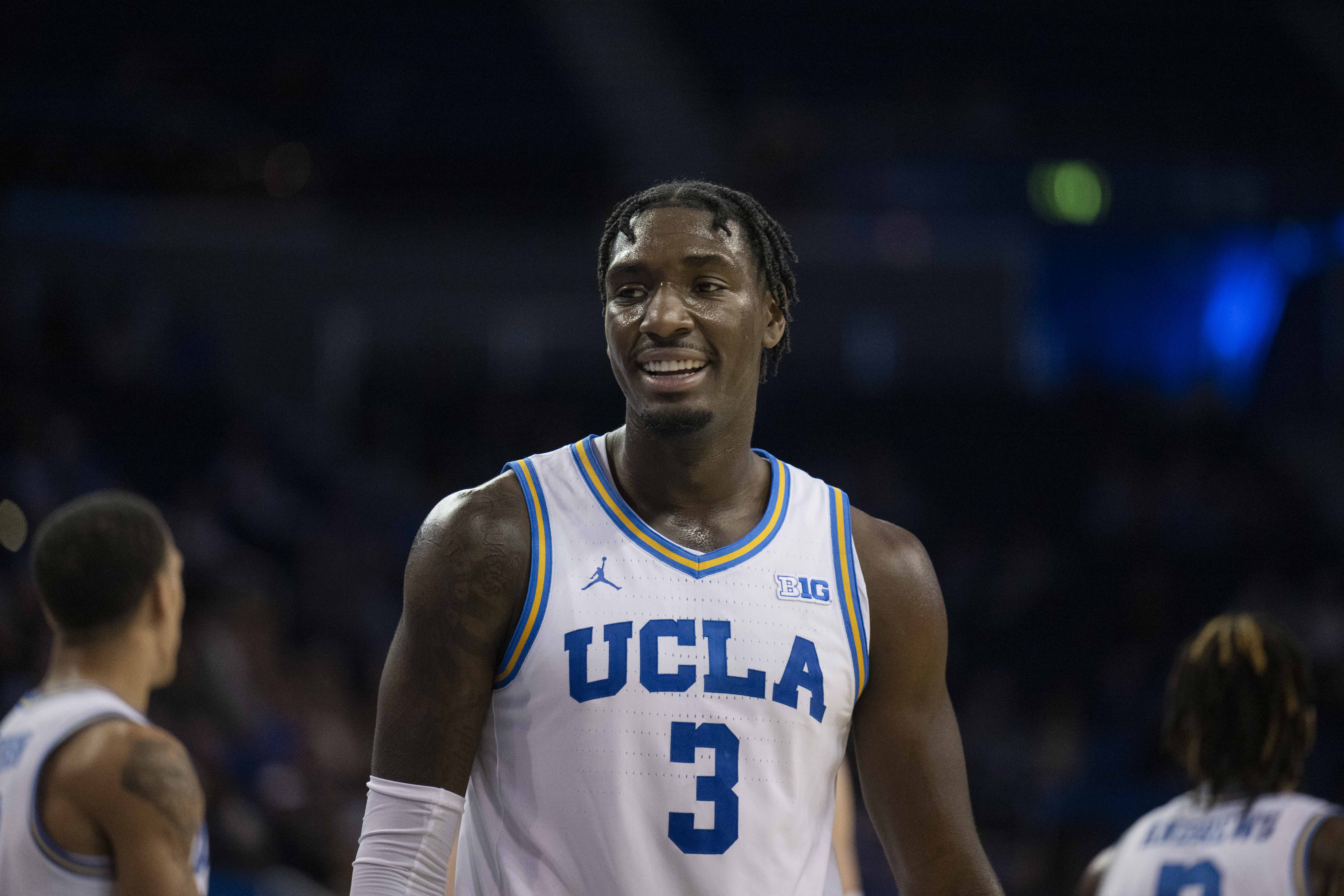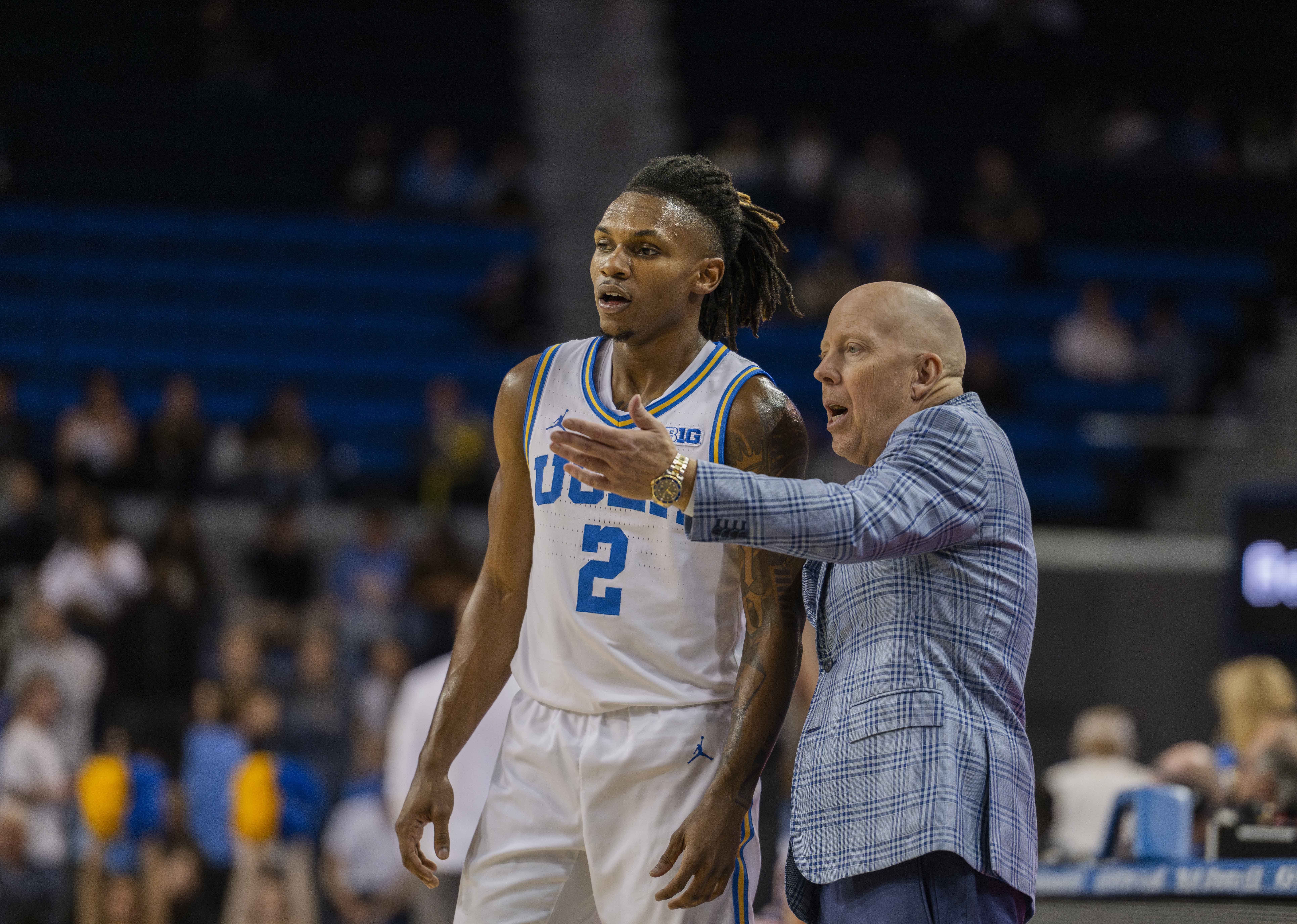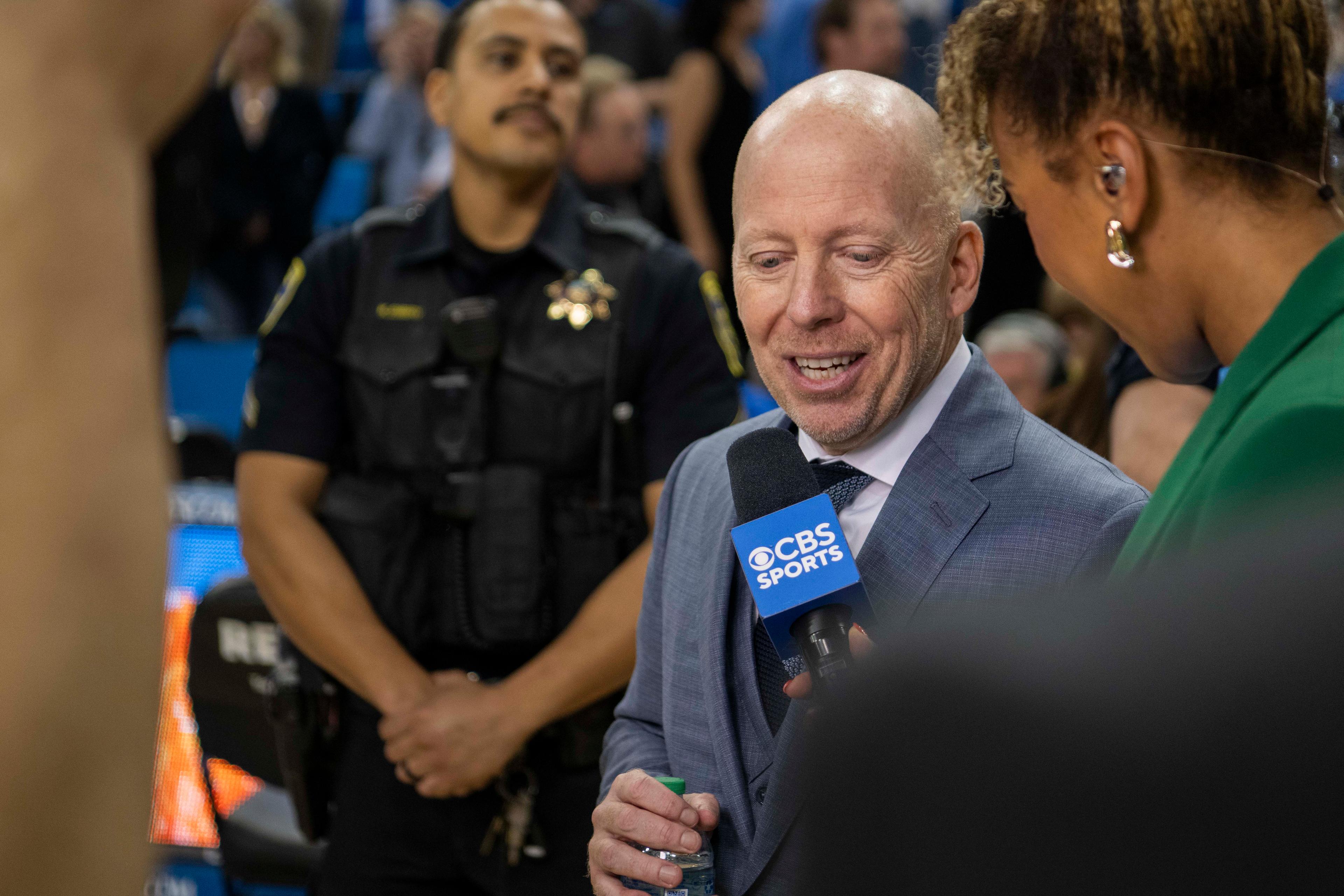Forget 500 wins, Mick Cronin’s building young men for life beyond the hardwood
UCLA men’s basketball coach Mick Cronin speaks to CBS reporter Tiffany Blackmon on Sunday afternoon after his team clinched a 69-61 victory over Ohio State, marking Cronin’s 500th career win. (Aidan Sun/Daily Bruin)
By Ira Gorawara
Feb. 26, 2025 12:28 a.m.
Three-and-a-half seconds before the final buzzer sounded Sunday, coach Mick Cronin was well on his way to congratulating the entire Buckeye roster.
He embraced his counterpart, coach Jake Diebler, and led the Bruins in line to commend each player that had stepped foot in Pauley Pavilion.
“500” flashed boldly across the jumbotron, casting its glow over the court Cronin has called home for nearly six years. However, he didn’t glance once at the scoreboard.
Naturally, UCLA men’s basketball fans surged to their feet. A sea of blue and gold applause washed over the arena – but Cronin never broke his stride. It was business as usual on career win No. 500.
“Jeff Van Gundy said this, and he’s somebody I have great respect for, … he said, ‘Legacy is the most overrated thing in life,’” Cronin said. “The most overrated thing in life.”
The youngest active head coach to collect 500 wins, Cronin hadn’t said a single word about his achievement halfway through his postgame press conference.

It wasn’t until the Los Angeles Times’ Bill Plaschke posed the inevitable question about the coach’s emotions that Cronin fully responded, which he acknowledged was driven solely by respect for Plaschke’s 38-year tenure at the paper.
Cronin cited Van Gundy’s perspective to challenge the media’s obsession on “legacy,” framing coaching as a job defined by unwavering conviction.
“I’m sure I get blowback for a lot of stuff. … I don’t worry about that stuff,” Cronin said. “I worry about when Skyy (junior guard Skyy Clark) and Eric (sophomore guard/forward Eric Dailey Jr.) are 28 – not right now – are they going to say that I cared about them? Enough to be hard on them and try to teach them right from wrong.”
And as both Dailey and Clark heard their coach’s postgame monologue while awaiting their turn on the podium, they wore T-shirts commemorating victory No. 500. The shirts flaunted a vibrant yellow emblem with a triumphant figure of Cronin holding the 4s up symbol and a bold 500.
But the truest tribute came in their words, echoing Cronin’s lasting imprint on their lives as young men off the basketball court.
“There’s some days we walk into practice and he’s on us the whole day,” Clark said. “But if you really sit back and look at it from a different perspective, you can tell he does care about us and that he’s looking out for our best interest. … He yells, but everything in the world is not going to be nice and pretty. So that’s making us tough for the real world.”
Cronin said his impact was never to be measured in numbers. It would reveal itself in a decade – when the 28-year-old versions of Clark and Dailey reminisce on their college coach, not just as a man who taught them basketball, but as the relentless force who tirelessly molded capable and self-sufficient men.
Men built for life beyond the hardwood. Where the challenges are unscripted, lessons aren’t drawn out and realities aren’t drawn on a playbook.
“When they’re 28, what was Mick Cronin all about? ‘Did he let me do things I shouldn’t have been doing just because I was scoring points for him?'” Cronin asked. “‘Or did he sit me down and try to change my ways as a man?’”

Cronin’s accusatory words went viral earlier this season – branding his players “soft” and “delusional” – another example of his unapologetic candor. His players are aware of the drill: A lackluster performance is often met with a verbal sledgehammer.
But behind the blunt edges of his criticism is a purpose far greater than basketball, anchored in a desire to prepare them for life after trading in their caps, gowns and blue-and-gold uniform.
He’s even encouraged his players to open a Roth IRA.
“He’s a real coach, a real person, and that’s really what you need to survive in this real world,” Dailey said. “He’s taught us a lot, how to save money, how to manage money – taught us how to be a good person as well – through basketball.”
And someday, his players will recognize the method to his madness and the lessons that outlived scores and results.
“When we’re 28, we’re going to look back and be like, ‘Yeah, he was definitely trying to help us out and teach us,’” Dailey said.
Because by then, numbers would have faded into irrelevance.
But character and values will stand the test of time.
“And to me, that’s way more important than winning 500,” Cronin said.
